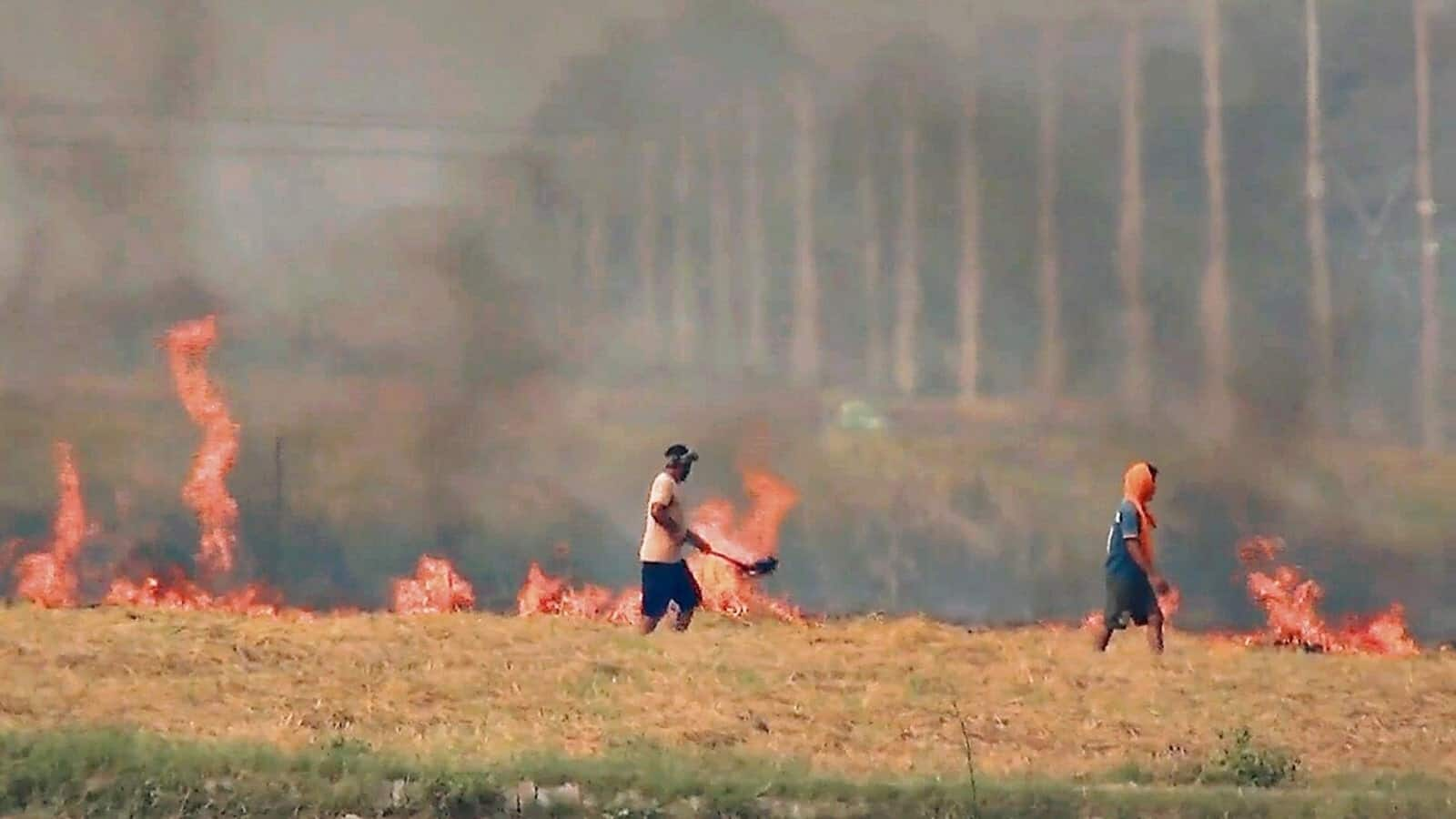
SC slams Centre over stubble burning, calls environment laws 'toothless'
What's the story
The Supreme Court on Wednesday slammed the Centre for not implementing stringent laws against stubble burning in North India.
The bench, which included Justices Abhay S Oka, Ahsanuddin Amanullah, and Augustine George Masih, called the Environment Protection Act "toothless" after amendments removed punishment and replaced it with penalties.
The court also expressed disappointment with the Punjab and Haryana governments for not taking action against those involved in the practice.
Unpunished violators
Over 600 stubble burning violators remain unpunished: SC
The court observed that despite 1,080 FIRs being registered in Punjab against stubble burning, only 473 offenders were fined.
This means over 600 violators went unpunished, a practice that has continued for three years.
Justice Oka also sought an explanation from the Punjab chief secretary for giving false information about a request for funds for tractors and diesel for farmers.
He warned contempt proceedings could be initiated if accountability wasn't established.
Regulation implementation
Centre assures implementation of environmental protection regulations
Additional Solicitor General Aishwarya Bhati, appearing for the Centre, assured the court that Section 15 (which deals with penalty for stubble burning) of the Environmental Protection Act would be fully operational in 10 days.
Bhati added that showcause notices have been issued to officials in Punjab and Haryana for not complying with orders to stop stubble burning.
To this, the court noted that if governments were serious about environmental protection, they would have taken action before amending Section 15.
Air quality
Haryana details action taken to control stubble burning
The court also reviewed the affidavit presented by Haryana's chief secretary and questioned about the state's actions to control stubble burning.
The state chief secretary said the annexures contain details on compliance. He stated that 5,123 nodal officers have been appointed and a monitoring committee has been formed, resulting in a considerable drop in stubble burning incidences.
However, the court noted that despite 400 burning occurrences, only 32 FIRs were recorded, indicating selective enforcement.